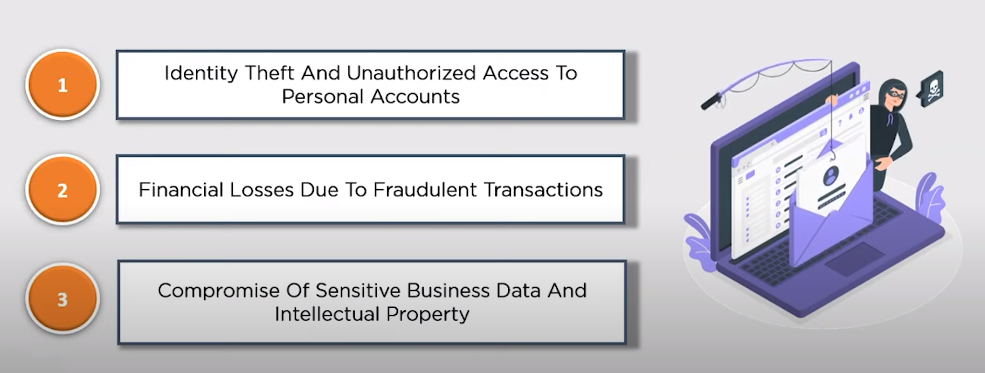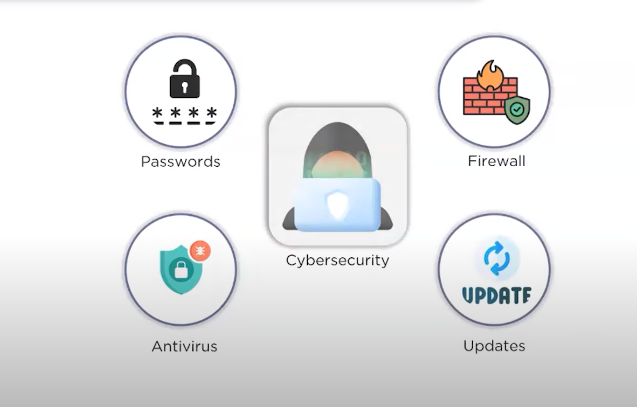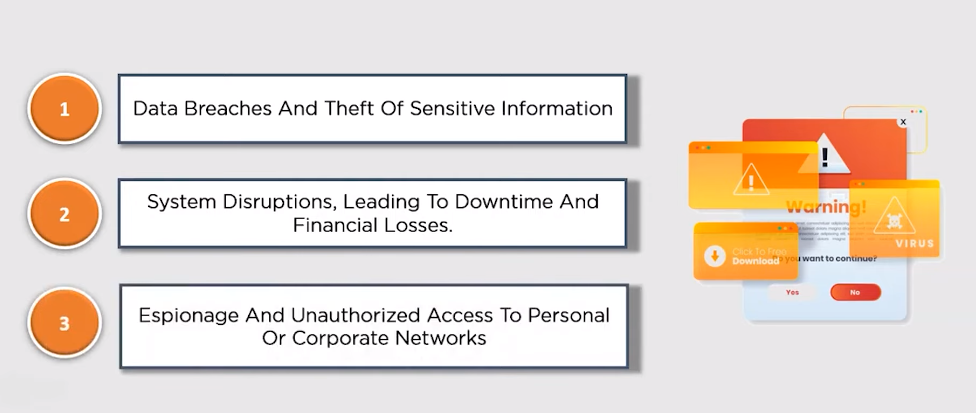Definition of Cyber Security and Data Science
Cybersecurity refers to the practice of protecting computer systems, networks, and sensitive information from unauthorized access, theft, or damage. It involves the use of various technologies, processes, and policies to secure digital assets and prevent cyber attacks. Data science, on the other hand, is the field of study that involves the extraction of insights and knowledge from data through statistical analysis, machine learning, and other data-driven techniques. It involves the use of various tools and technologies to collect, process, and analyze data
Overview of Cyber Security
Cybersecurity is the practice of protecting computer systems, networks, and digital information from unauthorized access, theft, or damage. It involves the use of various technologies, processes, and policies to secure digital assets and prevent cyber attacks. Cybersecurity is essential for organizations that rely on digital technologies to conduct their operations, as it helps to ensure the confidentiality, integrity, and availability of digital information.
Types of Cyber Attacks

Various types of cyber attacks can be carried out by cybercriminals. Some of the most common ones include:
1. Malware attacks: Malware is a type of software designed to harm computer systems, networks, or devices. Malware can be in the form of viruses, worms, Trojans, and ransomware.
2. Phishing attacks: Phishing is a type of social engineering attack in which cybercriminals use fraudulent emails, messages, or websites to trick users.
Cyber Security Frameworks
Cybersecurity frameworks are a set of guidelines and best practices that organizations can follow to improve their overall security posture. These frameworks provide a structured approach to managing cyber risks and can help organizations identify, protect, detect, respond, and recover from cyber-attacks. Some of the most popular cyber security frameworks include:1. NIST Cybersecurity Framework: Developed by the National Institute of Standards and Technology, this framework provides a set of guidelines, best practices, and standards for managing cyber risks.
2. CIS Controls: Developed by the Center for Internet Security, this framework provides a prioritized set of actions that organizations can take to improve their overall security posture.
3. ISO 27001: This is an international standard that provides a framework for information security management systems (ISMS).
4. PCI DSS: This is a set of security standards developed by major credit card companies to protect against credit card fraud.
By implementing these frameworks, organizations can improve their cyber security posture and reduce the risk of cyber attacks.
Cyber Security Best Practices
Here are some additional best practices that organizations can follow to improve their cyber security posture:
1. Regularly update software and systems: This includes operating systems, applications, and firmware. Regular updates often include security patches that help protect against known vulnerabilities.
2. Implement strong passwords: Passwords should be complex, include a mix of letters, numbers, and symbols, and be changed regularly. Implementing multi-factor authentication can also provide an additional layer of security.
Overview of Data Science
Data Science is an interdisciplinary field that involves the use of statistical and computational methods to extract insights and knowledge from data. It combines elements of statistics, mathematics, computer science, and domain expertise to analyze and interpret complex data sets. Data scientists use a variety of tools and techniques to collect, clean, process, and analyze data, including machine learning algorithms, data visualization tools, and statistical models.
Types of Data Science
There are several types of data science, including:
1. Descriptive Data Science: This type of data science involves summarizing and describing data to gain insights into what has happened in the past.
2. Predictive Data Science: This type of data science involves using statistical models and machine learning algorithms to make predictions about future events based on past data.
3. Prescriptive Data Science: This type of data science involves using data to make recommendations or decisions about what actions to take in the future.
Data Science Tools and Techniques
There are a variety of tools and techniques used in data science, including:
1. Programming languages such as Python, R, and SQL
2. Data visualization tools such as Tableau and Power BI
3. Statistical analysis tools such as SAS and SPSS
4. Machine learning algorithms such as decision trees, random forests, and neural networks
5. Data cleaning and preprocessing techniques such as data imputation and outlier detection
6. Big data technologies such as Hadoop and Spark
Comparison between Cyber Security and Data Science

Cybersecurity and Data Science are two distinct fields, but they share some similarities. Both fields require strong analytical skills and the ability to work with large amounts of data. However, there are some key differences between the two. Cybersecurity focuses on protecting computer systems, networks, and sensitive information from unauthorized access, theft, and damage. Cybersecurity professionals use a variety of tools and techniques to identify and prevent threats, including firewalls, intrusion detection systems, and encryption.
Similarities Between Cyber Security and Data Science
While there are some differences between cybersecurity and data science, there are also some similarities. Both fields require strong analytical skills and the ability to work with large amounts of data. In data science, professionals use statistical and machine learning techniques to extract insights and knowledge from data. Similarly, in cybersecurity, professionals use data analysis to identify potential threats and vulnerabilities. Both fields also require a strong understanding of programming languages and software tools. Additionally, both fields are in high demand and offer promising career opportunities.
Importance of Cyber Security and Data Science in Organizations
Cybersecurity and data science are both critical to the success and survival of modern organizations. In today’s digital age, businesses and governments rely heavily on technology and data to operate efficiently and effectively. However, this reliance on technology also makes organizations vulnerable to cyber-attacks and data breaches. Cybersecurity professionals play a crucial role in protecting organizations from these threats. They use a variety of tools and techniques to secure networks, systems, and data from unauthorized access or theft.
Career Opportunities in Cyber Security and Data Science
Cybersecurity and data science are two fields that are in high demand due to the increasing need for organizations to protect their data and systems. There are various career opportunities available in both fields, including:
Cybersecurity Analyst
A cybersecurity analyst is responsible for monitoring networks and systems for security breaches, investigating security incidents, and implementing security measures to prevent future attacks.
Penetration Tester
A penetration tester, also known as an ethical hacker, is responsible for testing the security of networks and systems
Cyber Security Consultant
A cyber security consultant is an expert who provides advice and guidance on how to protect an organization’s data and systems from cyber threats. They assess an organization’s security posture, identify vulnerabilities, and recommend solutions to mitigate risks. They may also provide training to employees on best practices for cyber security. This role requires strong analytical and communication skills, as well as up-to-date knowledge of the latest cyber threats and trends.
Cyber Security Manager
A Cyber Security Manager is responsible for overseeing an organization’s overall cybersecurity strategy and implementation. They work closely with the cyber security team to ensure that all systems and data are protected from cyber threats. They also collaborate with other departments to identify potential risks and develop plans to mitigate them. A Cyber Security Manager must have a deep understanding of cyber security best practices, as well as strong leadership and communication skills. They may also be responsible for managing budgets, hiring and training staff, and staying up-to-date on
Skills Required for Cyber Security and Data Science
Here are some skills required for Cyber Security and Data Science:
1. Technical skills: A Cyber Security Manager must have a strong technical understanding of cyber security and data science concepts. This includes knowledge of programming languages, operating systems, network protocols, and data analysis tools.
2. Communication skills: A Cyber Security Manager must be able to communicate complex technical concepts to non-technical stakeholders. They must also be able to work collaboratively with other departments to identify and mitigate risks.
3. Leadership skills: A Cyber Security Manager must be able to lead a team of professionals and motivate them to work towards common goals. They must also be able to make difficult decisions and take responsibility for the outcomes.
4. Analytical skills: A Cyber Security Manager must be able to analyze data to identify potential risks and develop plans to mitigate them. They must also be able to interpret complex data sets and communicate their findings to stakeholders.
5. Problem-solving skills: A Cyber Security Manager must be able to identify problems and develop effective solutions. They must also be able to adapt to changing circumstances and think creatively to overcome challenges.
6. Business acumen: A Cyber Security Manager must have a strong understanding of business processes and objectives.
Training and Certification for Cyber Security and Data Science
Training and certification are crucial for Cyber Security and Data Science professionals to stay up-to-date with the latest technologies and best practices. Some popular certifications for Cyber Security include Certified Information Systems Security Professional (CISSP), Certified Ethical Hacker (CEH), and CompTIA Security+. For Data Science, popular certifications include Certified Data Scientist (CDS) and Certified Analytics Professional (CAP).In terms of training, there are many online courses and boot camps available for both Cyber Security and Data Science.
Challenges in Cyber Security and Data Science
There are several challenges in both Cyber Security and Data Science. In Cyber Security, one of the biggest challenges is keeping up with the constantly evolving threat landscape. Cybercriminals are always finding new ways to exploit vulnerabilities, and security professionals must stay up-to-date with the latest technologies and techniques to prevent attacks. Another challenge in Cyber Security is the shortage of skilled professionals. According to a report by Cybersecurity Ventures, there will be 3.5 million unfilled Cyber Security jobs by 2021.
Future Trends in Cyber Security

Several future trends in Cyber Security are worth noting. One trend is the increasing use of Artificial Intelligence (AI) and Machine Learning (ML) to detect and respond to threats. These technologies can help security professionals quickly identify and analyze large amounts of data, and can even learn to recognize patterns of behavior that may indicate an attack. Another trend is the growing importance of securing the Internet of Things (IoT).
Conclusion
In conclusion, the future of Cyber Security is rapidly evolving and it is important to stay up-to-date with the latest trends and technologies. The increasing use of AI and ML, as well as the need to secure the IoT, are just a few of the trends that are shaping the industry. As cyber threats continue to grow, individuals and organizations need to prioritize Cyber Security to protect their sensitive information and assets.
FAQs
What is Cyber Security?

Cyber Security refers to the practice of protecting computer systems, networks, and sensitive information from unauthorized access, theft, damage, or other malicious activities. It involves a range of technologies, processes, and practices designed to safeguard digital systems and data from cyber threats, such as viruses, malware, phishing attacks, and hacking attempts. Cyber Security is essential for individuals, businesses, and governments to protect their assets, privacy, and reputation in the digital age.
What is Data Science?
Data Science is an interdisciplinary field that involves the extraction, analysis, and interpretation of data using various statistical and computational techniques. It combines elements of mathematics, statistics, computer science, and domain-specific knowledge to derive insights and knowledge from data. Data Science is used in various fields, including business, healthcare, social sciences, and natural sciences, to make data-driven decisions and solve complex problems.
How do Cyber Security and Data Science complement each other?
Cybersecurity and Data Science complement each other in several ways. Firstly, Data Science can be used to detect and prevent cyber attacks by analyzing large amounts of data and identifying patterns that may indicate a potential threat. Secondly, Cybersecurity can benefit from Data Science by using machine learning and artificial intelligence algorithms to automate the detection and response to cyber threats. Thirdly, Data Science can be used to analyze and understand the impact of cyber attacks on an organization’s data and systems.
What are the career opportunities in Cyber Security and Data Science?
There are numerous career opportunities in both Cybersecurity and Data Science. In Cybersecurity, you can work as a Security Analyst, Security Engineer, Penetration Tester, Security Consultant, or Chief Information Security Officer (CISO). In Data Science, you can work as a Data Scientist, Data Analyst, Machine Learning Engineer, Business Analyst, or Data Engineer. Both fields offer high-paying jobs and are in high demand in the current job market.
What are the challenges in Cyber Security and Data Science?
There are several challenges in both Cybersecurity and Data Science. In Cybersecurity, one of the main challenges is staying up-to-date with the constantly evolving threat landscape. Cybercriminals are always finding new ways to exploit vulnerabilities, and it can be a challenge for security professionals to keep up with the latest techniques and tactics. Another challenge in Cybersecurity is the shortage of skilled professionals. With the increasing demand for cybersecurity professionals, there is a shortage of qualified individuals to fill these roles.
What is the future of Cyber Security and Data Science?
The future of Cybersecurity and Data Science is quite promising. As technology continues to advance, the need for skilled professionals in these fields will only increase. In terms of Cybersecurity, there will be a growing demand for individuals who can develop and implement robust security measures to protect against cyber threats. This includes everything from network security to data encryption and access control. In Data Science, the future is also bright.
